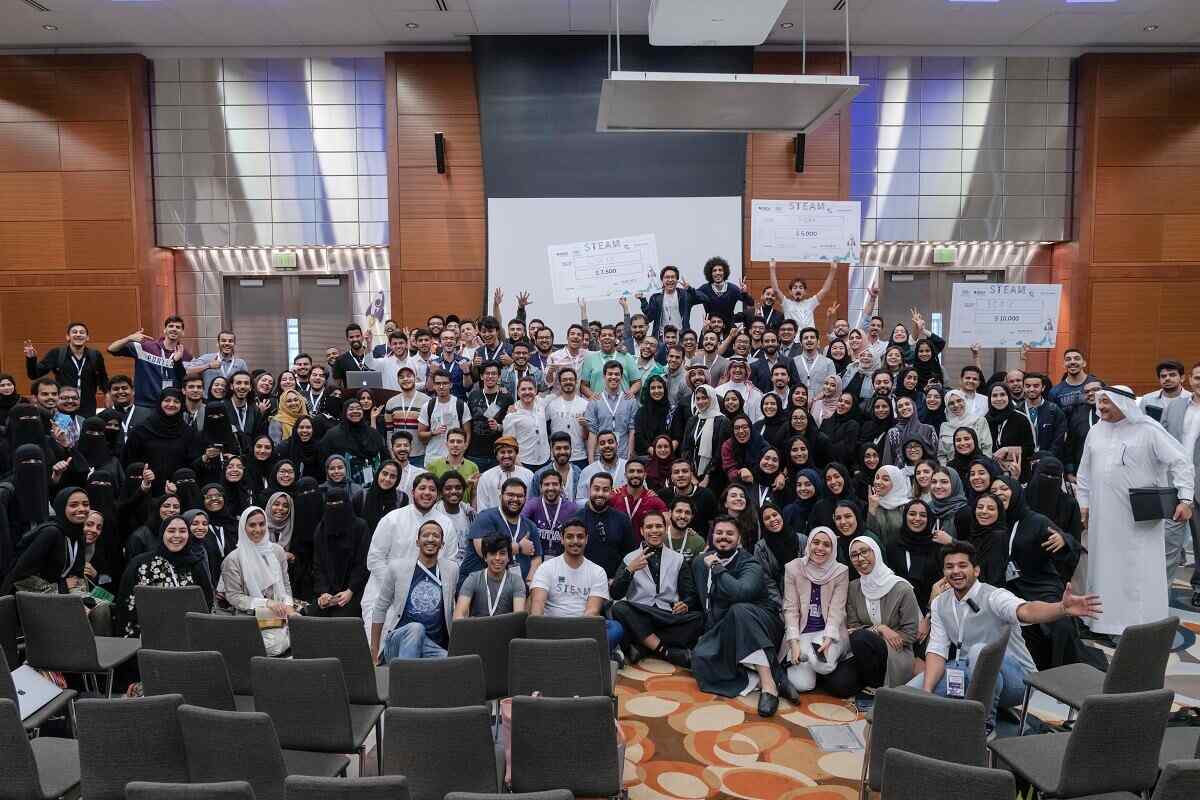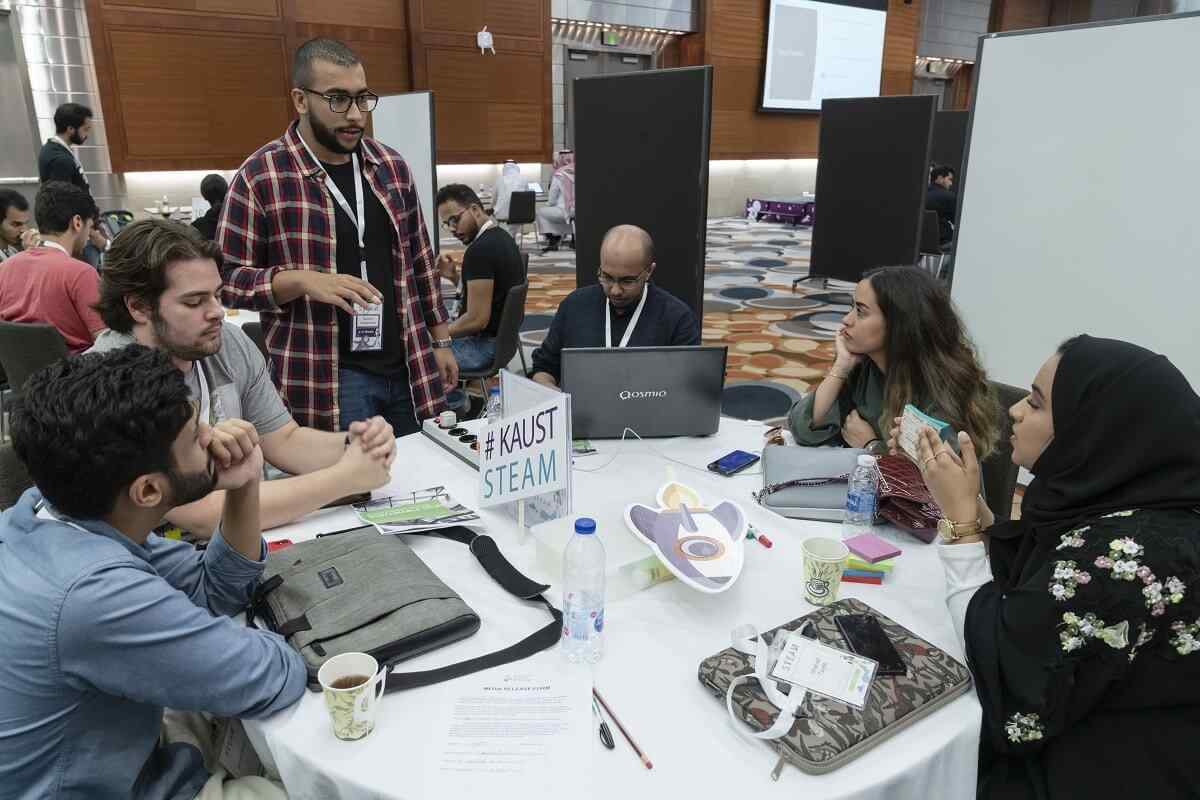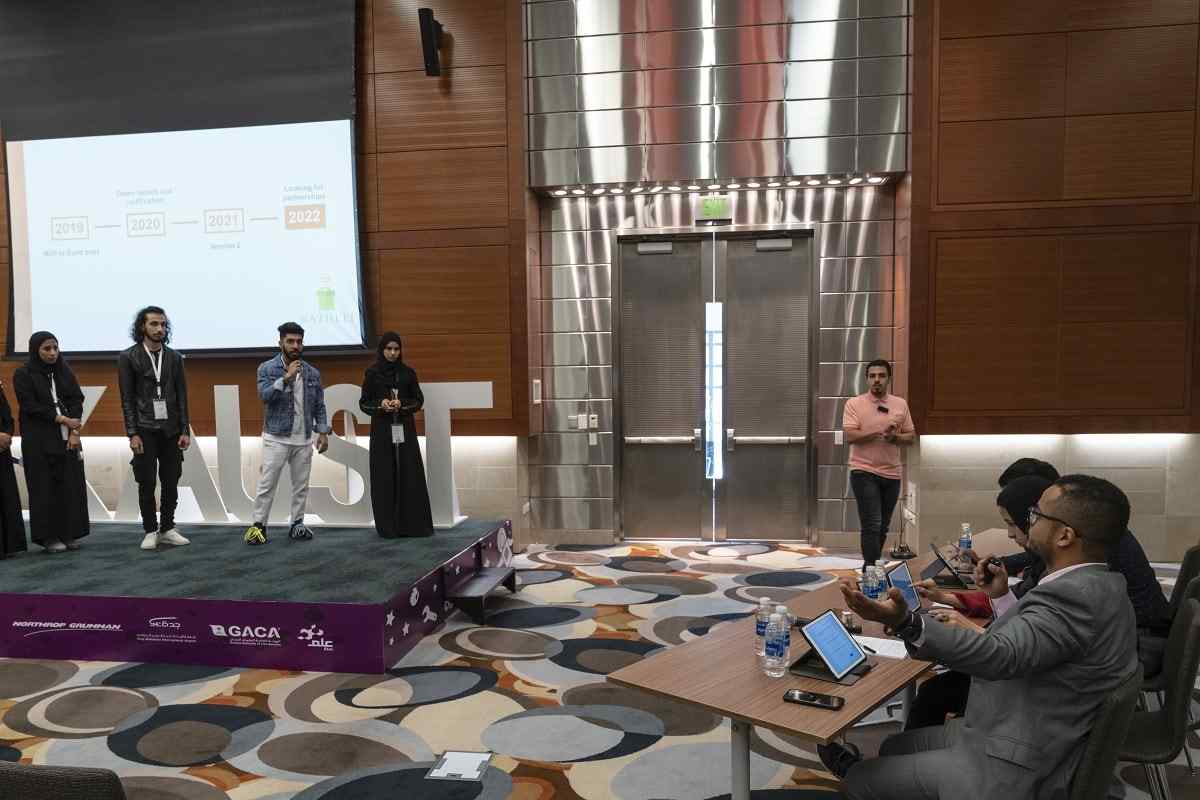STEAM Innovation Challenge brings Saudi university undergraduate entrepreneurs to KAUST

Around 300 undergraduate students from Saudi universities gathered at KAUST from May 2 to 4 to take part in the annual STEAM Innovation Challenge. Photo by Andrea Bachofen-Echt.
Around 300 undergraduate students from 20 Saudi universities gathered at KAUST from May 2 to 4 to compete in the STEAM Innovation Challenge. STEAM (short for science, technology, engineering, art and mathematics) is an annual intensive ideation program where mixed interdisciplinary team members work together to create innovative concepts tackling pressing national and global challenges.
This year's event—the seventh STEAM at KAUST and the largest yet—was held in partnership with Northrop Grumman, the General Authority of Civil Aviation (GACA) and Elm. KAUST Innovation and Economic Development organized the event.

Undergraduate students listen to their team members speak during the University's seventh annual STEAM Innovation Challenge, which took place on campus from May 2 to 4. Photo by Andrea Bachofen-Echt.
"We designed [the] STEAM Innovation Challenge to inspire youth in Saudi Arabia on a national scale by immersing them in an intensive innovation experience," said Hattan Ahmed, head of the KAUST Entrepreneurship Center. "The students addressed real challenges around the topic of sustainable cities crafted in collaboration with our corporate partners."

Participants in the University's recent STEAM Innovation Challenge pitch their ideas to a panel of judges during the event. Photo by Andrea Bachofen-Echt.
The winning teams were iCare, a bracelet to monitor pilgrims' vitals and report accidents to healthcare providers for a better Hajj experience; Cure, which works to incentivize the collection of unused household medications for distribution to relief organizations for better living; and EHFADHHA, a demand prediction software for food retailers.
Related stories:
- KAUST launches vFabLab™, its first virtual lab
- KAUST and Nesma Holding celebrate inauguration of Thuwal Embroidery Center
-
KAUST and Elm sign R&D cooperation agreement
-
KAUST hosts hackathon to create mobile apps for future smart cities

